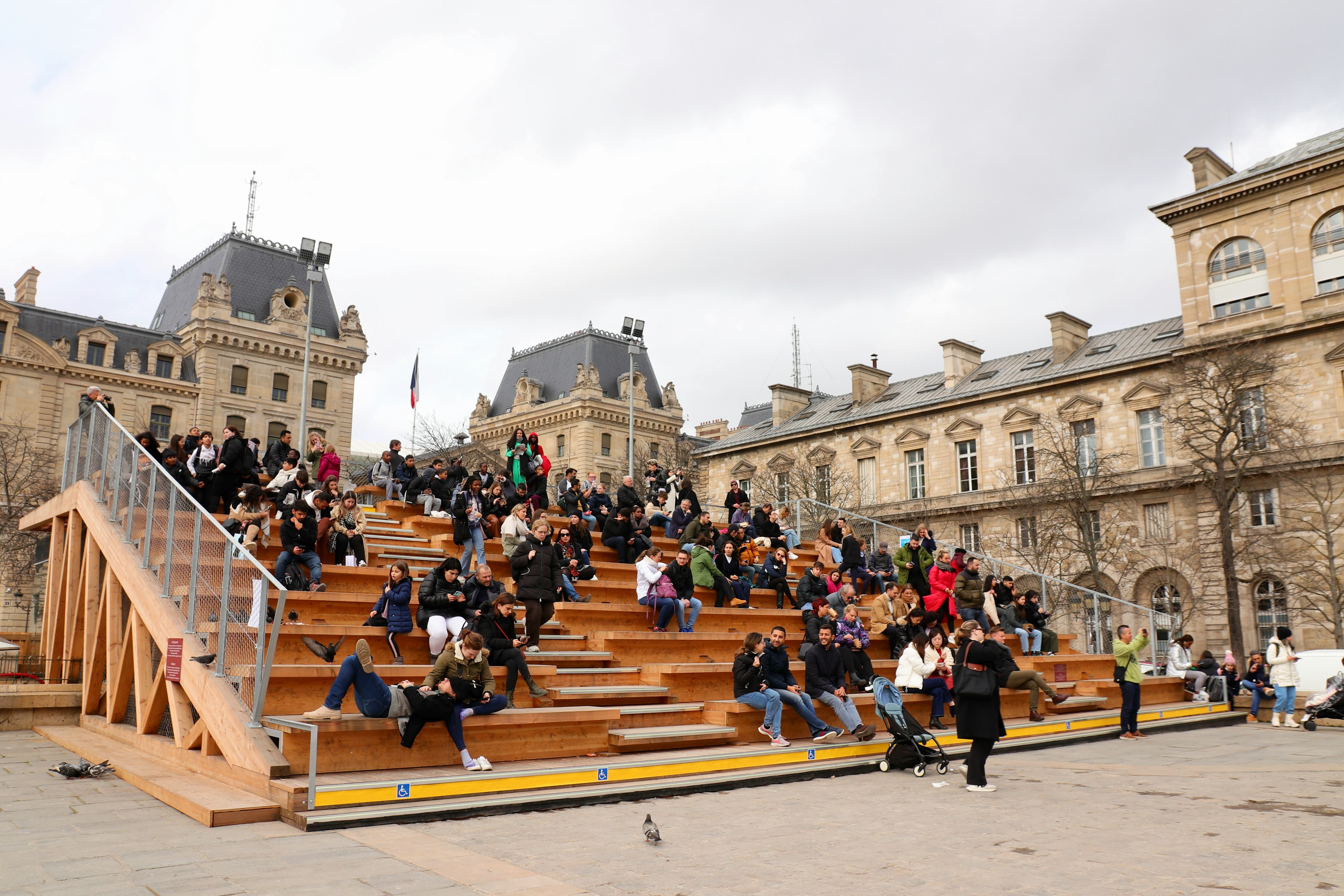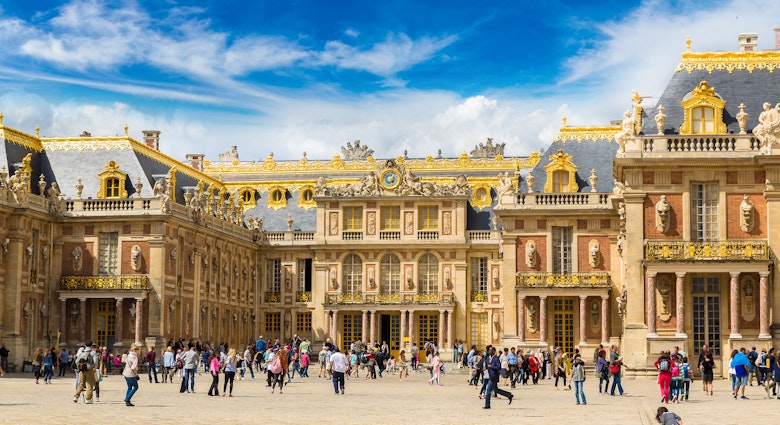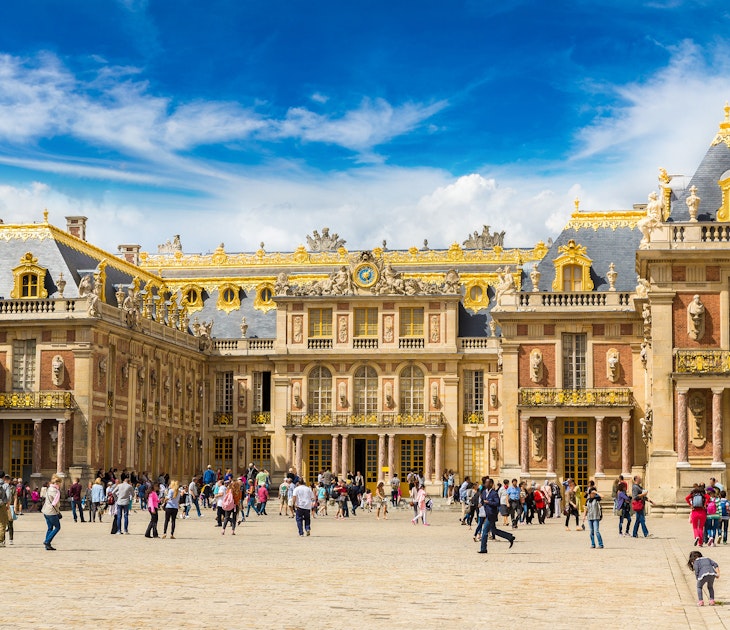
Notre Dame reveals December opening date amid debate over entry fee

Oct 31, 2024 • 5 min read

Notre Dame is preparing to officially resume services on December 8, 2024. Chesnot/Getty Images
It’s official: Notre Dame Cathedral, an icon of Paris, will officially reopen on December 8, 2024, after five years of restoration work following the 2019 fire. The reopening will feature several special exhibits, showcasing artifacts from the cathedral's history and highlights that reflect its 861-year history.
However, the reopening has also ignited a debate over a proposed entry fee to support the upkeep of Notre Dame and other historic French churches. Here's what visitors need to know.
When is Notre Dame reopening?
The cathedral will reopen to visitors and resume church services from December 8, 2024.
Following the fire, it took two years just to secure and stabilize the structure so that restorers could work safely within the church. The rebuilding project is now fully underway, with 1000 artisans and craftspeople across France working on bringing the cathedral back to life in time for the five-year reopening deadline. The full restoration of the cathedral is expected to be completed in 2025.

Will visitors have to pay an entry fee to visit Notre Dame?
Earlier this month, Culture Minister Rachida Dati proposed the introduction of a €5 entry fee, from cultural visitors rather than religious worshippers, to help fund preservation efforts for Notre Dame and other historic religious buildings across France. Dati pointed out that similar fees exist for cathedrals in Spain, Italy and the UK. "All over Europe, people have to pay to enter the most remarkable religious buildings," Dati told Le Figaro newspaper in an interview published last week.
France’s national heritage organization, the Fondation du Patrimoine, reported that about 5000 churches are in critical condition, with nearly 500 closed due to disrepair. According to its president, Guillaume Poitrinal, an entry fee could generate €75 million annually for at-risk sites and "could help prevent them from disappearing altogether.”
However, French Catholic officials are firmly opposed to the idea, emphasizing that France's churches should remain free to all, citing France's 1905 law guaranteeing free access to religious sites. In a recent statement, the Notre Dame Chapter argued that an entry fee would detract from the experience, limiting the "sense of communion" central to the site. It also argued that due to the narrow size of the cathedral "it would be difficult to distinguish between visitors, pilgrims, and worshippers."
While the government sees the fee as a way to preserve France's heritage, the church insists that Notre Dame should continue to welcome guests without financial barriers. So, for now, access remains free.

How is the reopening of Notre Dame being celebrated?
There are plenty of events scheduled to mark the reopening. While you may have limited interest in the underground exhibit discussing the restoration efforts, the sheer grandeur of the monument, which still stands largely intact (if surrounded by scaffold and cranes), still astonishes.
New bleachers set up at the far end of the cathedral square offer visitors a terrific vantage point of the monument, since the perimeter of the church is obstructed by a wraparound enclosure.
Nearby, visitors can also venture behind the scenes and learn more about the herculean efforts to save the church in a new exhibit called Notre Dame de Paris: In the heart of the restoration, which opened in a former underground parking garage behind the bleachers. The exhibit is free, with no advance reservations required. While it's scheduled to run even when the cathedral reopens, it will be closed between December 6 and 8.
For a more immersive experience, there’s also Eternal Notre Dame, a 45-minute cinematic virtual reality show that takes viewers back in time, introducing them to major players behind the cathedral’s construction over its 861-year history. The VR experience is available in the same underground venue at Notre Dame, as well as at the Cité de l’Histoire at the northwest end of the city, at La Défense. Tickets are €31. The Archaeological Crypt of the Île de la Cité offers another subterranean experience beneath the cathedral square.

What will Notre Dame be like when it reopens?
Not long after the fire, architects around the world threw out design proposals that ranged from the interesting to the outlandish (memorable details from the designs included a roof made entirely of stained-glass windows, an indoor greenhouse and even a fire-proof rooftop swimming pool). Yet in the end, officials decided to stick with tradition and stay as faithful to the original design as possible.
The same applies to the interior of the church. Plans to replace chairs with modern, moveable benches with built-in light and audio systems and proposals for light projections were scrapped after 100 notable French figures signed an open letter in Le Figaro calling the redesign “kitsch” and disrespectful to architect Viollet-le-Duc’s vision. Plans for the indoor furnishings will be finalized later this year.
As part of the unprecedented restoration process, the cathedral is undergoing a major deep clean that will eliminate not only debris from the fire, but also a century’s worth of dust and pollution. Visitors will return to find brighter, whiter stone walls, more-vibrant colors on wall paintings and stained-glass windows that gleam.
By 2027, the transformation of the cathedral’s surrounding area will also be complete, bringing a tree-lined square and a cooling feature that will release a trickle of water during periods of extreme heat.
The park south of the cathedral will be expanded into one continuous green space, while the underground parking garage will be transformed into an indoor promenade that opens onto the Seine.

What’s an underrated but equally stunning and historic church that I can visit in the meantime?
Also on Île de la Cité and less than a 10-minute walk from Notre Dame, Sainte-Chapelle is another Gothic masterpiece, commissioned by King Louis IX to house his personal collection of Christian relics. At its peak, it was home to 22 relics – including the crown of thorns (before it was moved to Notre Dame).
Built between 1242 and 1248, Sainte-Chapelle’s 15 stained-glass windows depict 1113 scenes from the Old and New Testaments in a dazzling kaleidoscope of colors. Whereas Notre Dame impresses with its scale and size, Sainte-Chapelle overwhelms the senses, with its soaring, reverential 50ft-tall windows bathing visitors in a near-mystical blue light. The entrance fee is €13.
Explore related stories

Art and Culture
Marie Antoinette’s rooms at Versailles will reopen in June. Here's what you can see insideJun 1, 2023 • 3 min read

 HistoryNotre Dame will be restored to exactly how it was before the devastating fire
HistoryNotre Dame will be restored to exactly how it was before the devastating fireJul 15, 2020 • 2 min read
 HistoryThe restoration of Notre Dame is on hold due to the coronavirus outbreak
HistoryThe restoration of Notre Dame is on hold due to the coronavirus outbreakMar 24, 2020 • 2 min read
 Festivals & Events8 of the best cities in Europe to celebrate New Year’s Eve
Festivals & Events8 of the best cities in Europe to celebrate New Year’s EveNov 6, 2024 • 7 min read
 Art and CultureFrance itineraries: 5 routes to see the best of the country
Art and CultureFrance itineraries: 5 routes to see the best of the countryOct 24, 2024 • 13 min read
 Art and Culture3 days in Paris: the ultimate itinerary (when you've done the Louvre and the Eiffel Tower)
Art and Culture3 days in Paris: the ultimate itinerary (when you've done the Louvre and the Eiffel Tower)Aug 23, 2024 • 8 min read


 Art and Culture7 of 2024's best TV and movie locations to inspire your travels
Art and Culture7 of 2024's best TV and movie locations to inspire your travelsJul 18, 2024 • 7 min read
